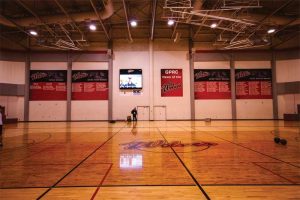
For more complex jobs, we like to know how creative we can get, and sometimes all it takes is a really great concept.
SMC: How is technology changing your business?
JM: We deliberately embrace new technology as quickly as possible—from production to sales and design. This allows us to be agile and leverage everything we have.
One might also say we are a little obsessed with efficiency in our processes. For instance, we track everything possible, while at the same time ‘touching’ projects—physically or digitally—as little as possible.
For instance, more than 10 years ago we stopped proofing by e-mail and fax and moved to an online system. This was until we found software that allowed us to proof from our point-of-sale (POS) system. Many shops do not like the ongoing costs of this software but we can prove, based on the volume of work we do, that keeping track of every project and the various stages they are in would require nearly double our current staff.
We also recently upgraded our raster image processor (RIP) with the new printer and now wish we did this much sooner. The production efficiencies we gained in this upgrade alone have been almost as impactful as when we added the Rollsroller flatbed applicator years ago. We are interested in any technology that is capable of making jobs simpler and faster for our staff.
SMC: What is the key to staying successful in the sign industry?
JM: First and foremost is passion for the work. It is not always going to be 100 per cent of every part of the business, but it changes as a company grows. If one loses their passion it becomes harder to get up and go to work every day.
Also integral to our success is being thorough on everything we do. We constantly evaluate our work and ask ourselves, “Would we pay for that?” Further, should a client migrate to us after having difficulties at another shop, we take a moment to make sure we are not inadvertently doing the same things that may have upset the customer in the first place. To this point, our staff embraces this mindset as well.

Local schools have become a large part of the customer base as they have started to pay more attention to their brands.
Finally, we leverage everything we can to enable us to do our jobs as owners and paying staff to do other duties. There is no harm in being the signmaker and having someone else do the customer-facing activities.
SMC: What are the future plans for your business?
JM: We have our eye on the new HP flatbed printer but are working out a business case for it. Being so far away from the main city centres means we have to rely on ourselves and make things happen internally. As such, having a range of tools at our disposal is always handy.
The next biggest objective we have is finding someone who wants to continue this for us. It would be nice to find a couple in their 20s with the same aspirations we have who can see a bigger picture for the shop than we can after so many years in the sign industry.
For more information, visit www.speedprowest.ca.





